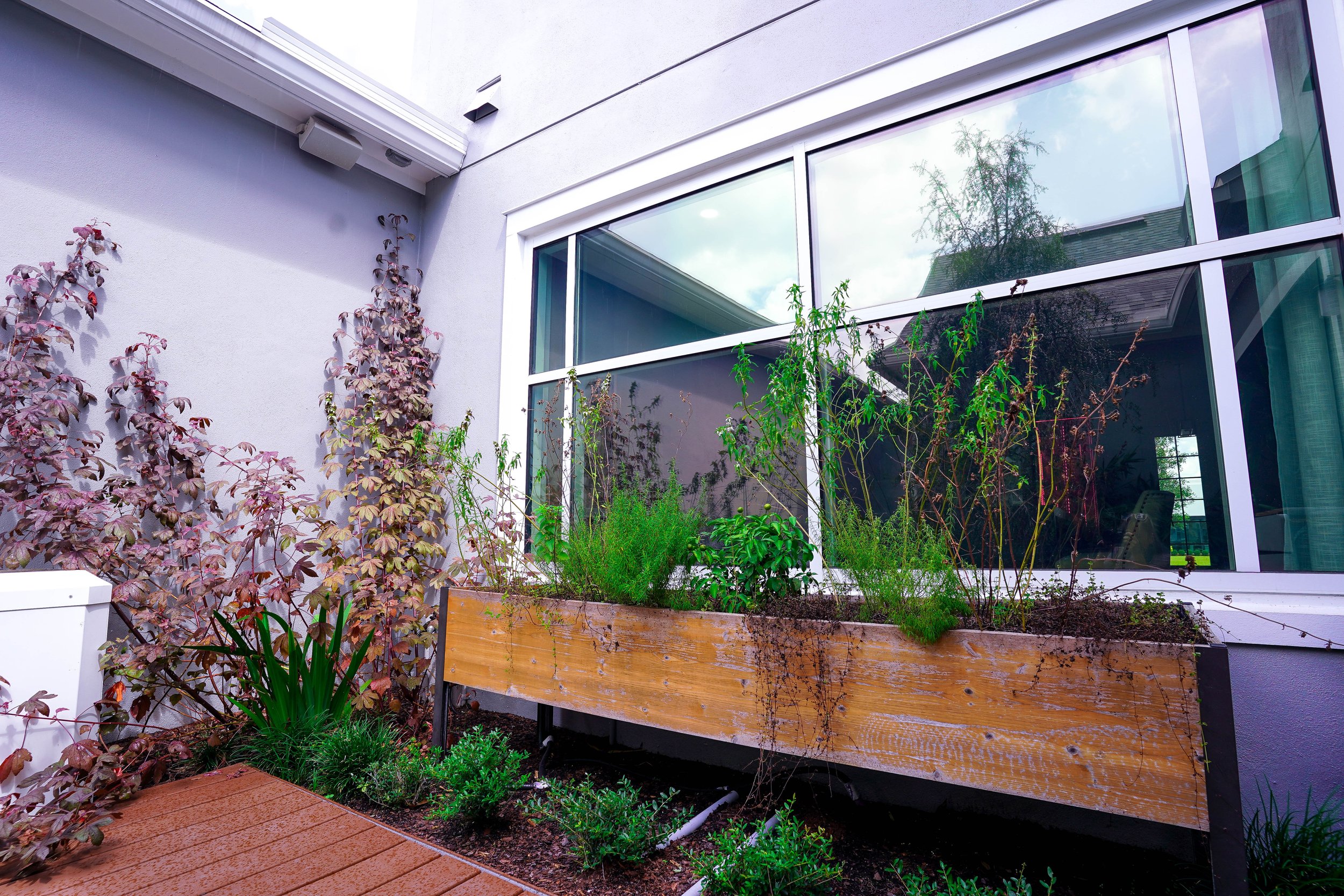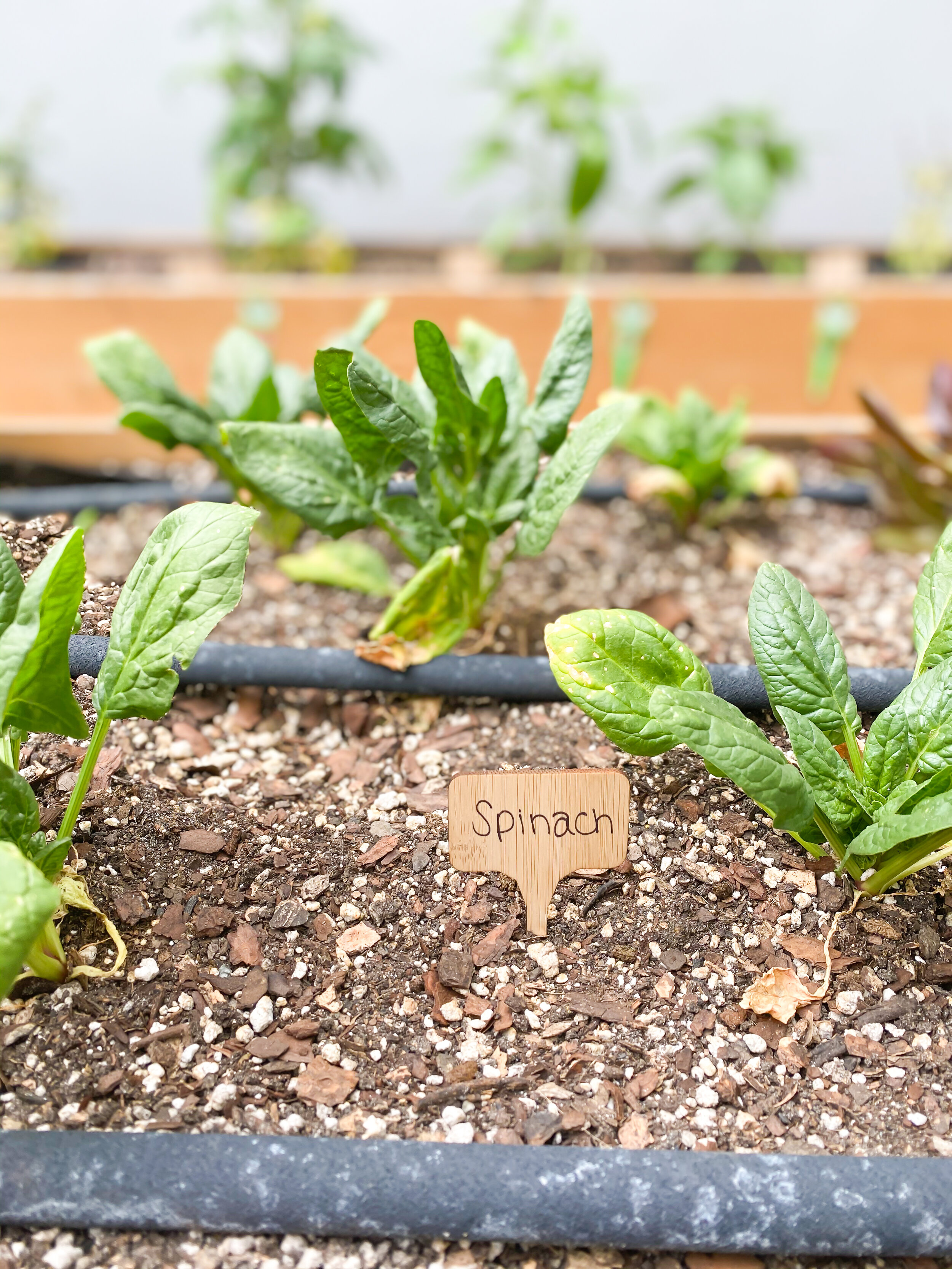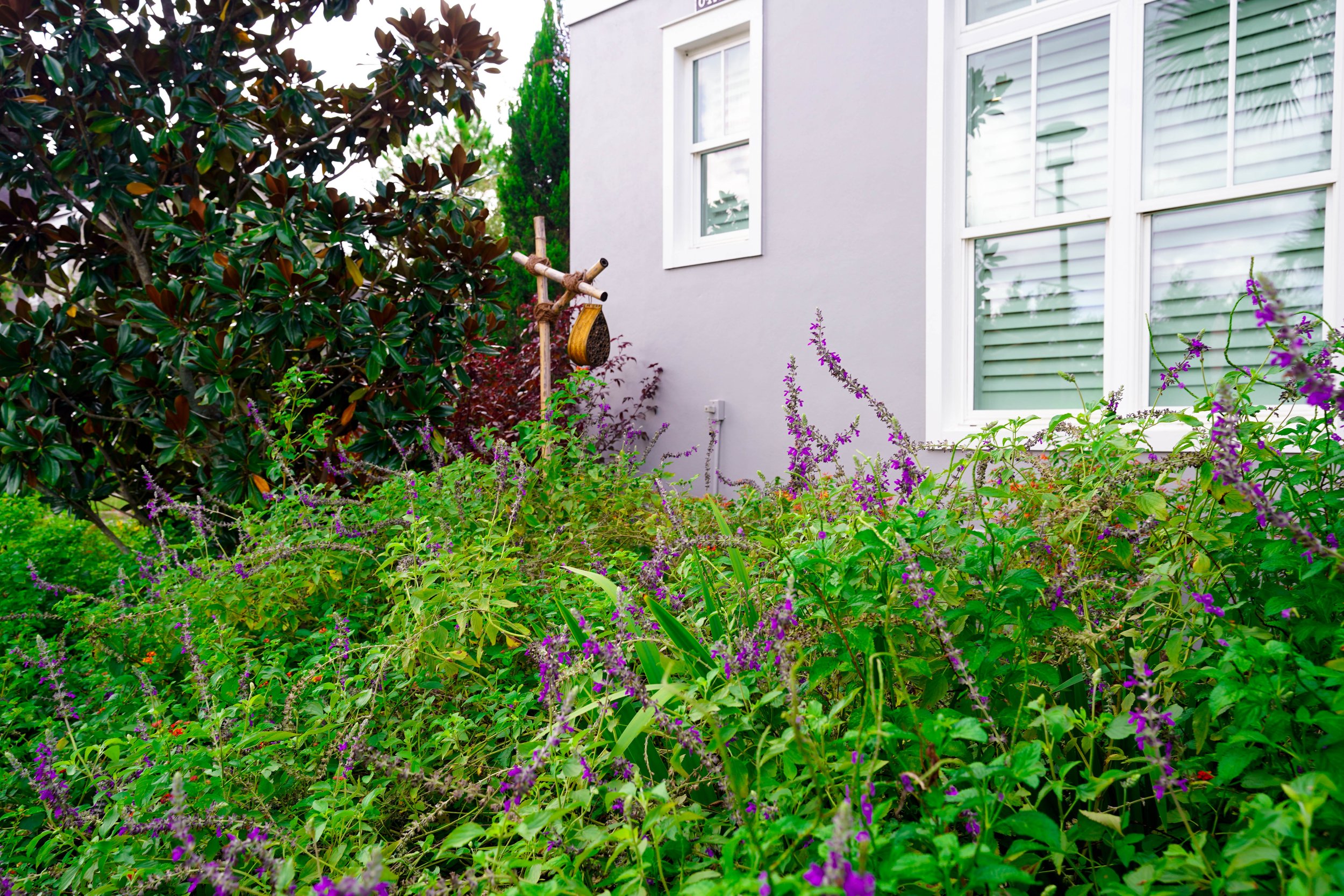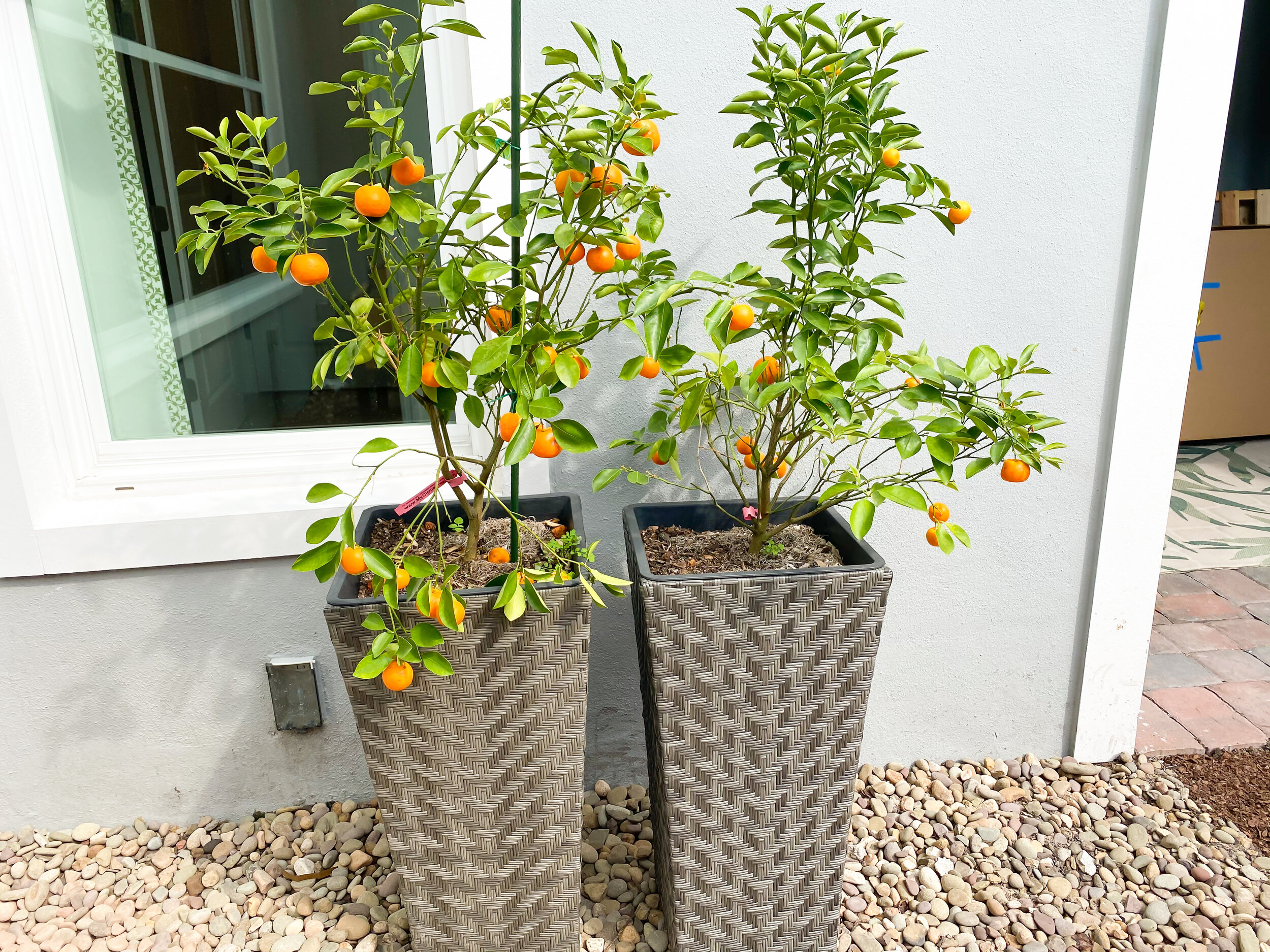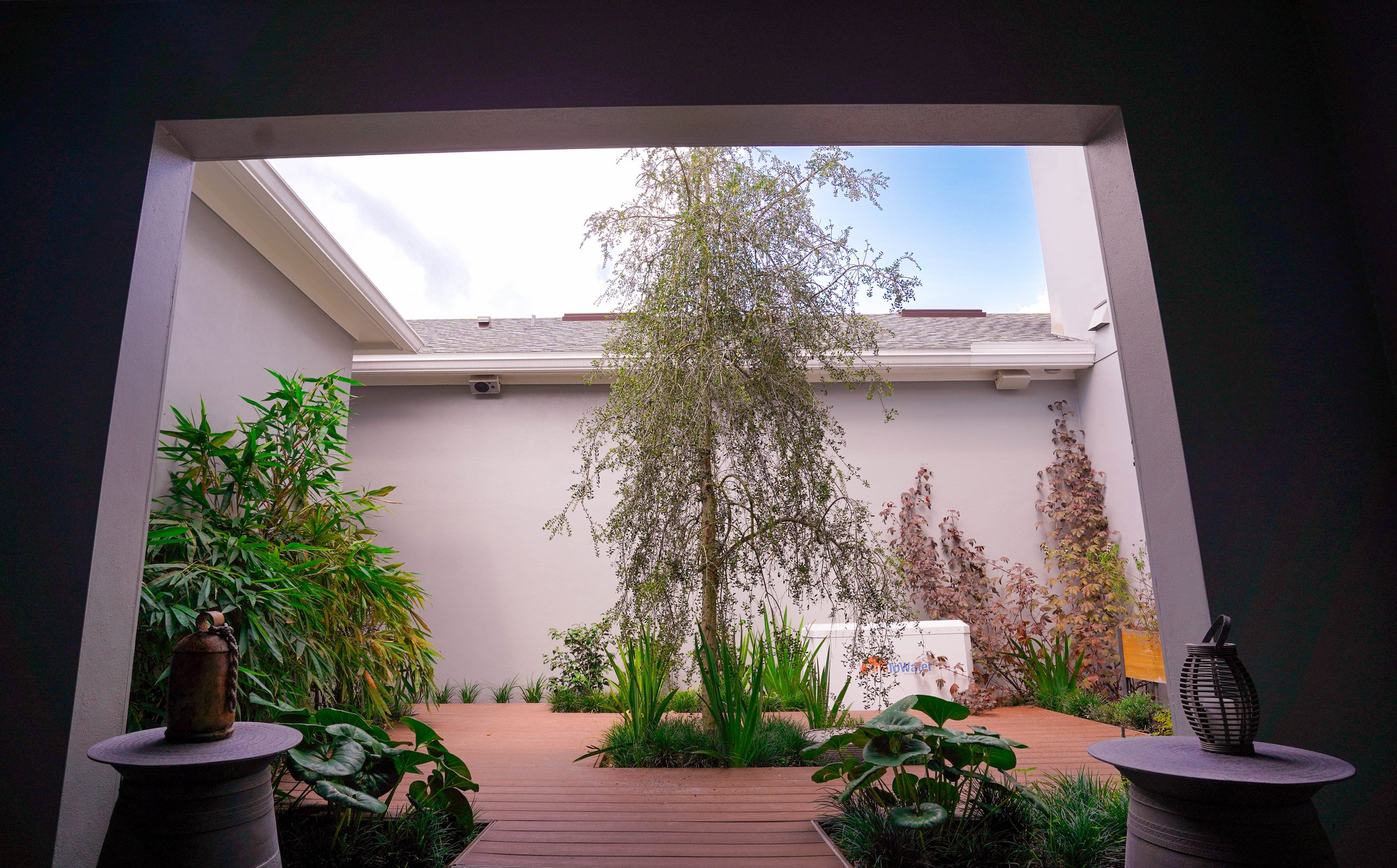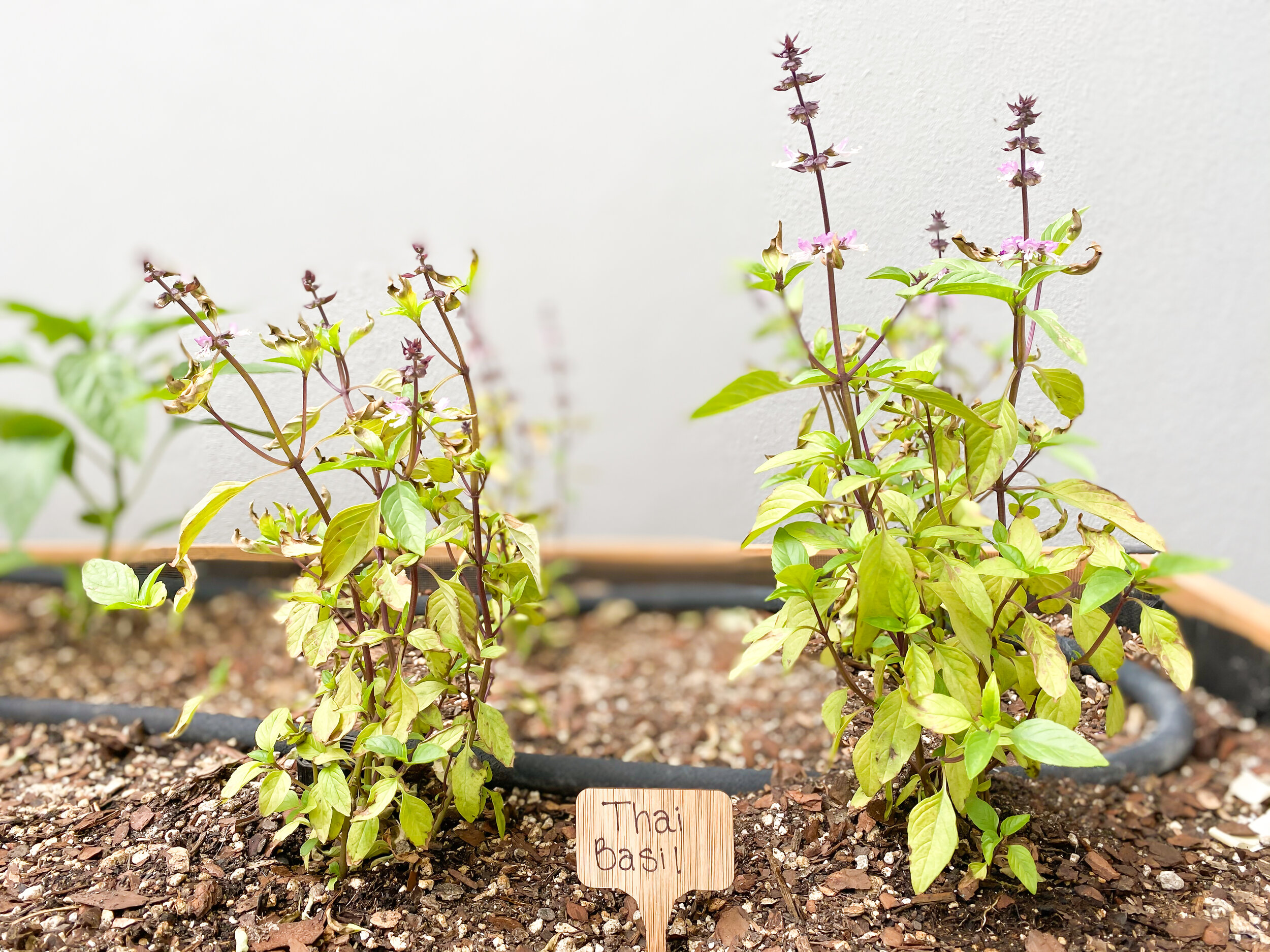The WHIT Home Garden and Landscaping aims to highlight sustainability and the idea of thinking globally and acting locally.
The future of food and the entire planet is intricately linked to sustainability. Here at WHIT, we’re taking the following steps to make the home’s landscape more sustainable and address food production at a micro level of a single-family home.
Replace Traditional Turf with Low Maintenance Groundcovers
A great way to make the landscape at WHIT more sustainable was to eliminate the turf, which is one of the least sustainable components of a Florida Landscape. Turf grasses need more water, require more maintenance (mowing, edging, and blowing) and more chemicals like fertilizer and weed control than all other types of landscape. We replaced the turf with low-maintenance groundcovers like perennial peanut, powder puff mimosa and frog fruit; all of which require little maintenance.
Plant Long-Lasting Perennial Plants Instead of Shrubs
Pollinators are crucial to food production and their populations are declining, so we added a range of perennial plants to benefit pollinators from native mason bees to butterflies. We also included larval food sources for butterflies and bee houses providing greater nesting opportunities for native mason bees.
Incorporate Fruit Trees into Landscaping
The next step was to look for ways to produce food and embrace the idea of a food community. This enhances our relationship with the environment by letting us consume what is produced in the landscape. To achieve this goal, we planted fruit trees in the front yard in areas where ornamental trees are typically used. These trees can rely on the pollinators enticed by the perennial plants to ensure fruit production.
Install a Tea Garden
There are many plants that are easy to grow and make beneficial teas full of antioxidants and other health-enhancing compounds. We incorporated non-traditional tea plants in the front yard including the native yaupon holly shrub which has been a source of tea for the indigenous people of North American for thousands of years. It is the only naturally occurring source of caffeine on the continent!
We’ve also brought this idea of a tea garden into the courtyard at the back of the house. The weeping yaupon holly is the center piece of a Zen inspired ’Decompression Garden’. It offers a refuge from today’s hectic world and provides a contemplative space with the soothing sound of water and additional plants that can be easily harvested to include in a daily regimen of herbal teas. Some of these plants include native mints, cranberry hibiscus, and citrus, all perfect for brewing your own healthy home-grown tea.
Mason Bee Houses
These efficient pollinators are typically nonaggressive and rarely sting.
Mason bees stay close to their house, adapt to their weather climate and even work on rainy days, when honeybees do not.
Why is it helpful? Having a hard-working Mason Bee population in your yard enables food-producing plants to produce more and flowers to grow bigger, thus increasing fruit production.
Smart Mosquito Trap
Biodegradable attractant to reduce environment impact.
Simulate human breathing pattern by releasing attractant to optimizing trapping efficiency.
Solid-state lighting spectrum technology for improving trapping accuracy.
Integrated geographic location system for automatic self-configuration based on local mosquito categories.
Off-grid capability for remote deployment.
Why it is helpful? Smart mosquito trap is offering chemical free, environmentally-safe pest control solution for mosquito-born diseases such as Malaria, Dengue Fever, West Nile Virus and Encephalitis.
SunToWater
The SunToWater system is an atmospheric water generator that produces drinking water from the air. It uses a patented technology that operates in two stages:
1. Absorption: During the night, when the relative humidity is high, the generator absorbs moisture from the air using a proprietary desiccant.
2. Extraction: During the day, when the sun is shining, the moisture is condensed into water and purified using a series of filters.
Why is it helpful?
The final product is fresh, pure drinking water that exceeds WHO (World Health Organization) water purification standards. The SunToWater system can produce up to 8 gallons of water per day, making it a great option for homes that want to achieve drinking water independence or that need a backup water source in case of an emergency.
Here are some of the key features of the SunToWater system:
Produces up to 8 gallons of fresh, pure drinking water per day.
Safe in any atmospheric conditions
Meets WHO water purification standards.
Eco-friendly materials
Low-maintenance design


